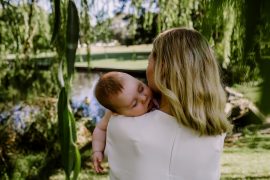-
Personal Development
No, this doesn’t mean you have to start listening to Tony Robbins books (unless that’s your jam, of course). Essentially what I mean is that our kids need us to get our shit together. And if we’re honest, we all have work to do in this regard.
I’m a perfectionist and a people pleaser, and I’ve responded to my son in ways I’m not proud of simply because of who happened to be watching. I can also be critical and shaming. Not great qualities for nurturing a small person’s development. Accepting these qualities as much as I recognize my strengths allows me to notice when I’m parenting in ways I’d like to change.
And while no one escapes childhood entirely unscathed, working on ourselves means that our children won’t need to recover from their childhoods. It gives them the space to work through their own issues rather than ours. It also models that we’re all imperfect and that there’s great strength to be found in accepting our flaws even while working toward becoming our best selves.
-
Really Good Boundaries
Having good boundaries means recognizing what belongs to us and what doesn’t. When your kid is upset, it’s his upset. Not yours. I love the imagery I first learned from Rebecca Eanes of the parent as a lighthouse. When storms are raging, we are the steadfast beacon, the light guiding our kids back to safety. We don’t dive into choppy waters, we remain on solid ground and beckon small vessels to safety.
Plus all those adages about self-care exist for a reason. We have to put our own oxygen mask on first. We have to take care of ourselves in order to care for others. When we accept responsibility for our children’s drama in whatever form it takes, we are committing to solving problems that aren’t ours to solve and absorbing emotions that are none of our business to fix. We rob our children of the opportunity to learn and grow, and we will burn ourselves out in record time. Tantrums and meltdowns are much easier to navigate when we realize we aren’t responsible for making them stop. We offer compassion, but we resist the urge to rescue our kids from their own feelings. We really only ever do that to make ourselves feel better anyway, right?
Tantrums and meltdowns are much easier to navigate when we realize we aren’t responsible for making them stop. We offer compassion, but we resist the urge to rescue our kids from their own feelings.
-
A Sense of Humor
In the course of your time as a parent, you will find yourself in a myriad of ridiculous situations. You’ll say, do, and hear things you could never have imagined. I’ve played “Charles Dickens goes to Costco” and I’ve danced to a dinosaur rock opera in the kitchen, crooning about a parasaurolophus. And these are just examples from the span of a week. I’ve also inadvertently picked poop up off the floor with my bare hand (three times and counting – apparently I’m a slow learner), I’ve stifled laughs when my son tries out new words and misses the mark, and I’ve gone to outlandish lengths to make him sleep. Life is easier and more fun if you can laugh at the absurdity, messiness, and relentless of parenthood.
Individual parenting styles will differ, and we’ll all bring our own strengths along for the ride. By taking care of ourselves, making an effort to truly see our children for who they are, and approaching parenting with a sense of lightness, we will be in good shape to raise healthy kids and actually enjoy ourselves along the way.
Megan Stonelake is a therapist and parent coach who teaches parents all over the world how to become more peaceful. She has written extensively on peaceful parenting for Parent.co, Hey Sigmund, and The Huffington Post among others. You can follow her blog or schedule a session at her website. You can also follow her on Facebook and Twitter.










